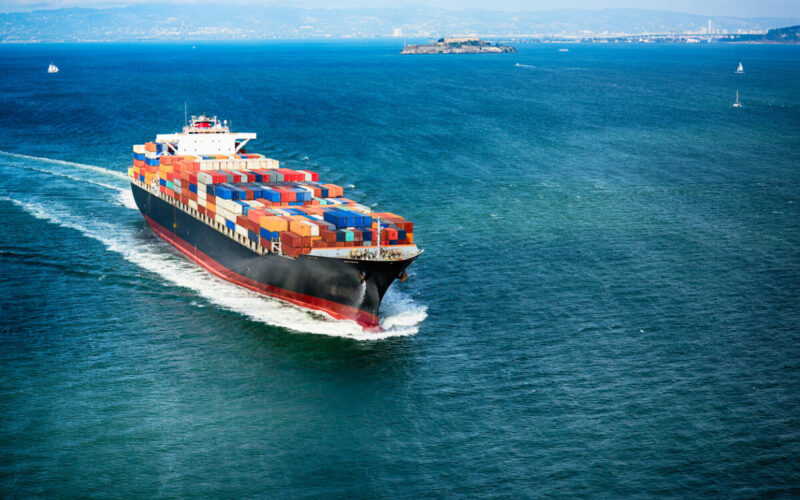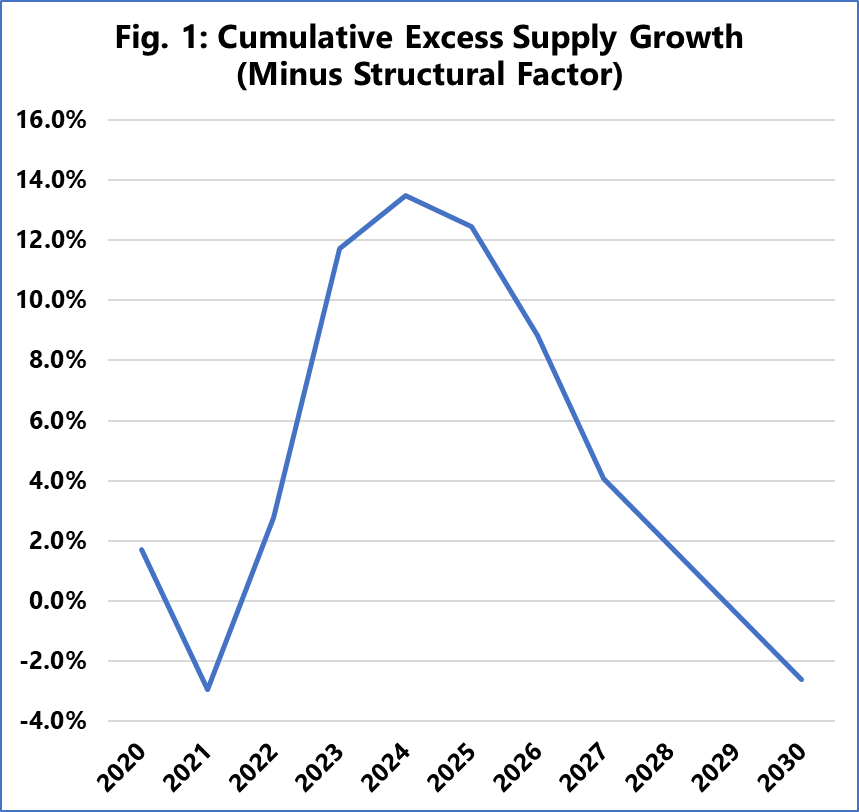According to Sea-Intelligence, the earliest recovery to the supply/demand equilibrium will begin in 2028.
The market is entering a downcycle, with large surplus capacity being supplied in 2023, and the same is likely to occur in 2024.
In its 637 issue of the Sunday Spotlight, Sea-Intelligence described the most desirable scenario of the overcapacity market getting balanced within reason from the carriers’ perspective as follows:
- Year-over-year (YoY) container volume increase of 3.8 per cent from 2024, mirroring the average growth of the post-financial crisis and pre-pandemic period of 2011-2019.
- Based on the present orderbook, supply growth in 2023-2026.
- Supply growth of only 1.3 per cent for the decade after 2026, matching the lowest level recorded in the previous ten years (in 2016).
- A “structural factor” – i.e. how much faster supply can grow over demand, with the market remaining in balance – of 2.2 percentage points.
READ: Demand for recreational goods increases
Figure 1 depicts the magnitude of global oversupply relative to the pre-pandemic norm of 2019, during the 2020-2030 timeframe, based on the fairly optimistic assumptions made above.
So, in the absence of a surge in global container demand, another pandemic sucking up capacity, or carriers laying up a major portion of the worldwide fleet and ordering no new vessels, Sea-Intelligence expects a supply/demand balance similar to that seen in 2019 in 2028.
READ: EU ETS uncertainties set to cause carrier misalignments
Alan Murphy, CEO of Sea-Intelligence, said: “Gaining this balance in 2028 would imply an eight-year span – the same as the cycle from the financial crisis until balance was restored again in 2017. The worst of the overcapacity will be seen in 2024, and by 2026, one-third of the overcapacity will have been absorbed.
“However, if the assumptions underpinning the positive scenario are put in jeopardy by lower demand growth, even modest supply growth, or a lower structural factor, all of which are quite likely, then the 2019-level balance could be pushed out to 2030 or beyond.”









